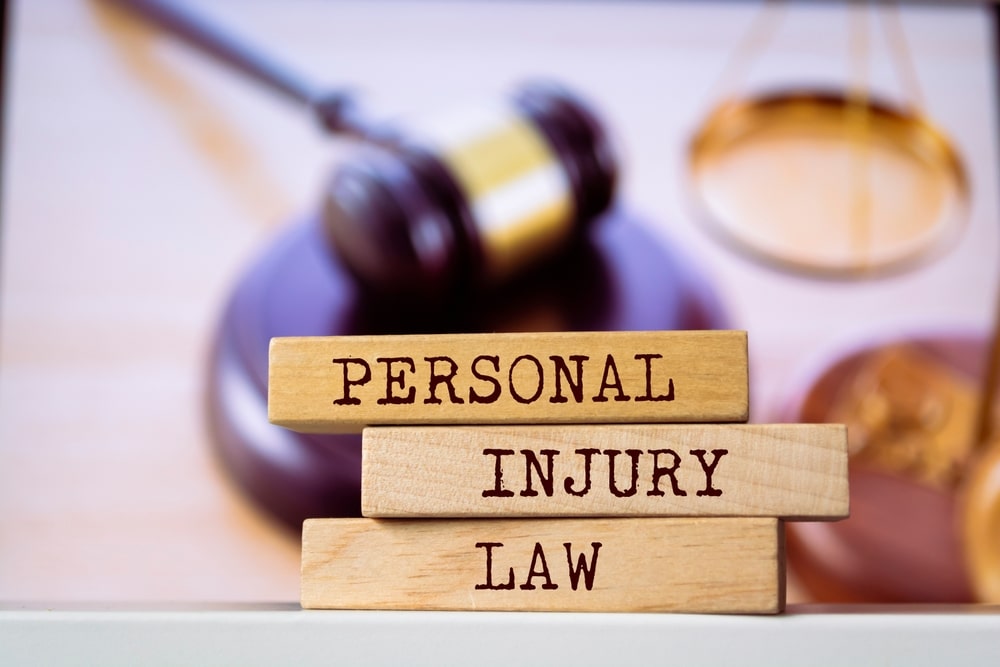January 24, 2024
When to Hire a Personal Injury Lawyer in Tennessee: Key Indicators for Legal Representation
Deciding whether to hire a personal injury lawyer can be a critical choice for individuals who have suffered an injury due to someone else’s negligence. This legal professional is trained to handle claims and help clients navigate the complexities of personal injury law. They work to ensure that the injured party receives fair compensation for their losses, which can include medical expenses, lost wages, and pain and suffering. The optimal time to seek the expertise of a personal injury lawyer is immediately following an accident, as this allows the lawyer to promptly gather evidence and guide the client through the early stages of a claim.
A personal injury lawyer becomes particularly essential when the case involves substantial injuries, long-term or permanent disability, or a significant loss of income. These scenarios often result in complicated legal and medical issues that require professional legal insight. Moreover, insurance companies may attempt to minimize payouts, and having an experienced lawyer can help ensure that the client’s rights are protected, and their interests are aggressively represented.
When liability is unclear or multiple parties are involved in an accident, the legal proceedings can become complex. An experienced personal injury lawyer can analyze the legal aspects of the case, identify all potential sources of liability, and work to apportion fault to the appropriate party or parties. Their ability to negotiate with defendants and insurers can be invaluable in securing a settlement that adequately compensates for the client’s damages.
Understanding Personal Injury Law
Personal injury law enables individuals to seek compensation when they suffer harm due to another’s actions or negligence. It encompasses various cases, each defined by the nature of the injury and the context in which it occurred.
Definition of Personal Injury
Personal injury refers to any physical, emotional, or psychological harm a person endures because of another party’s conduct. This definition includes injuries that are intentional (assaults), accidental (car accidents), and those stemming from negligence (medical malpractice).
Types of Personal Injury Cases
Personal injury cases can be categorized into several distinct types, including but not limited to:
- Vehicle Accidents: Injuries resulting from collisions involving cars, trucks, motorcycles, bicycles, and pedestrians.
- Slip and Fall Accidents: Occurring when a person slips, trips, or falls as a result of a dangerous or hazardous condition on someone’s property.
- Medical Malpractice: Injuries sustained from a healthcare professional’s failure to provide the standard of care.
- Product Liability: Injuries caused by defective or dangerous products.
- Workplace Accidents: Injuries that happen in the workplace or while performing work-related duties.
- Wrongful Death: Claims made when a person dies due to the negligence or misconduct of another party.
Each type requires specific evidence and follows particular legal processes to establish liability and secure compensation.
When to Consider Hiring a Lawyer in Tennessee
Deciding to hire a personal injury lawyer can be essential when one’s injuries are severe or if there is a dispute with the liable party or their insurance company.
Severity of Your Injuries
- If a person sustains serious injuries or long-term impairment, they may require a lawyer to secure adequate compensation.
- The financial stakes are typically higher with severe injuries, which could lead to a more complex legal process in tennessee.
Disputed Liability and Insurance Issues
- Hiring a lawyer is prudent when liability is unclear or the insurance provider denies the claim.
- An experienced lawyer can help gather evidence to strengthen the claim and negotiate with insurance companies or represent the injured party in court if necessary.
Benefits of Hiring a Personal Injury Lawyer
Hiring a personal injury lawyer can greatly improve the chances of a fair settlement and ensure that the legal process is handled with expertise. They provide valuable assistance in navigating the complex landscape of personal injury law.
Legal Expertise and Guidance
A personal injury lawyer brings a wealth of legal knowledge that is crucial for understanding the intricate laws and regulations surrounding personal injury cases. They assist clients in:
- Identifying Legal Theories: Professionals adeptly pinpoint applicable laws to a client’s case.
- Paperwork and Deadlines: Ensuring all necessary documents are filed accurately and on time, avoiding costly mistakes.
Negotiation and Representation
An attorney’s skill in negotiation can lead to better settlements for clients. Their representation includes:
- Negotiating with Insurance Companies: Attorneys have experience in dealing with insurers, countering tactics that aim to minimize payouts.
- Advocacy in Court: Should a case go to trial, a lawyer will passionately represent the client’s interests in court.
Selecting the Right Lawyer in Tennessee
When an individual faces the task of hiring a personal injury lawyer, focusing on credentials and the lawyer’s ability to communicate effectively is essential.
Credentials and Experience
A personal injury lawyer’s credentials are a fundamental aspect to evaluate. Prospective clients should ensure that the lawyer holds a valid license to practice law in their jurisdiction. Additionally, they should verify the lawyer’s standing with the state bar association.
- Legal Education: Where did the lawyer study? Look for accreditation from reputable institutions.
- Continued Learning: Has the lawyer pursued additional certification or specialized training in personal injury law?
- Specialization: Personal injury law encompasses various domains. Does the lawyer specialize in cases similar to yours (e.g., workplace accidents, medical malpractice, automobile accidents)?
- Success Rate: What is the lawyer’s history with cases like yours? The number of successful settlements or verdicts can offer insight.
- Awards and Recognition: Have they received any awards or peer recognition for their work in the field?
The lawyer’s experience directly impacts the sophistication and tactics used in handling a case.
- Years of Practice: How long has the lawyer been practicing personal injury law?
- Case Familiarity: Are they familiar with cases of similar complexity and legal challenges?
- Negotiation Skills: Evidence of strong negotiation skills can be seen in their past settlements.
Personality and Communication
The personality of a personal injury lawyer and their communication style are crucial factors that affect the client-lawyer relationship. A client needs to feel confident in how their case will be managed and conveyed.
- Responsiveness: Does the lawyer respond to communications in a timely manner?
- Clear Communication: Can the lawyer explain the legal process in understandable terms without resorting to jargon?
- Relationship Building: Does the lawyer take the time to build a rapport with clients? A strong working relationship can contribute to a more effective representation.
- Availability: Will the lawyer or someone from their team be readily available to address your concerns throughout the case?
It’s advisable for potential clients to meet with the lawyer to assess their communication style and comfort level in person, if possible.
The Legal Process and Timeline
Engaging a personal injury lawyer involves a series of legal steps that must be undertaken in a structured manner. Timelines can vary based on case complexity, jurisdiction, and other variables.
Initial Consultation
In the Initial Consultation, a personal injury lawyer will assess the details of an individual’s situation. This includes evaluating the injuries, potential negligence, and the impact on the client’s life. They typically do not charge for this meeting and it sets the groundwork for whether the attorney will take the case.
Investigation and Case Building
During the Investigation and Case Building phase, attorneys collect evidence, interview witnesses, and develop legal strategies. Critical activities include:
- Acquiring medical reports
- Filing legal documents
- Consulting with experts
Case Building can take several months as meticulous documentation and evidence collection are paramount to a strong case.
Settlement and Litigation
Negotiating a Settlement may resolve the case without going to trial. Lawyers engage with the opposing parties to agree on compensation that reflects the damages incurred. If a settlement is not reached, the case moves to Litigation. Key litigation steps are:
- Filing a lawsuit
- Discovery process
- Mediation
- Trial
Each stage can last from a few months to a few years, depending on the case complexity and court schedules.
Costs and Fees Associated With Legal Services
Understanding the cost structures and various fees of legal services is critical for individuals considering hiring a personal injury lawyer.
Contingency Fees Explained
Contingency fees are a common payment arrangement for Nashville personal injury attorneys. Under this structure, the lawyer receives a percentage of the settlement or court award, typically ranging from 25% to 40%, only if they win the case or settle out of court. If the attorney does not secure a win for their client, they generally do not charge any fee.
Example of a standard contingency fee breakdown:
- If the settlement is $100,000, and the contingency fee agreement is 30%, the attorney would receive $30,000.
Additional Expenses
Personal injury cases often incur expenses beyond attorney fees. Examples of such additional expenses may include:
- Court filing fees: These are mandatory fees for filing documents with the court.
- Costs for obtaining medical records and police reports: Charges can be applied for copying and handling such documents.
- Expert witness fees: Compensation for expert testimony can add significant costs.
- Administrative expenses: These cover routine office costs such as postage and copying.
All these expenses might be required to be paid up front, or they may be deducted from any settlement or award at the conclusion of the case. Clients should ensure they understand their attorney’s billing practices for these additional costs.
Preparing Your Case
Effective preparation is crucial for a successful personal injury case. It involves thorough documentation and proper handling of medical records to substantiate the claim.
Documentation and Evidence Collection
- Accident Report: Obtain a copy of the official accident report, if applicable, from the police or the relevant authority.
- Photographs: Take clear pictures of the scene, injuries, and any property damage.
- Witness Information: Compile a list of witnesses with their contact details and statements.
- Personal Notes: Keep detailed notes on the accident, including date, time, location, and how the incident occurred.
Medical Treatment and Records
- Immediate Treatment: Seek immediate medical attention after the injury to document its extent and causation.
- Follow-up Care: Attend all follow-up appointments and adhere to medical advice, as gaps can affect the claim.
- Medical Reports: Request copies of all medical reports, which should include diagnoses, treatments, and prognosis.
- Billing Statements: Gather all medical bills and receipts related to the injury, including medication and aids.
What to Expect During the Legal Procedure
In the personal injury legal process, one should expect a detailed investigation phase followed by court proceedings that may lead to appeal.
Discovery and Depositions
Discovery is the stage where both parties exchange information pertinent to the case. This includes interrogatories, requests for documents, and admissions. It is a structured process where relevant facts are gathered.
During Depositions, witnesses give sworn testimonies. The plaintiff and defendant can be deposed, along with other parties who have factual knowledge of the case. Transcripts from depositions may be used in court if the witness cannot attend the trial.
Trial and Appeals
Trial involves presenting the case before a judge or jury. Witnesses may be called to testify, and evidence is presented. Key components of a trial include:
- Opening statements
- Witness testimony
- Cross-examination
- Closing arguments
Post-trial, either party may file for an Appeal if they believe there was a legal error that affected the outcome. Appeals are heard by a higher court, which reviews the trial’s proceedings without a new trial.




